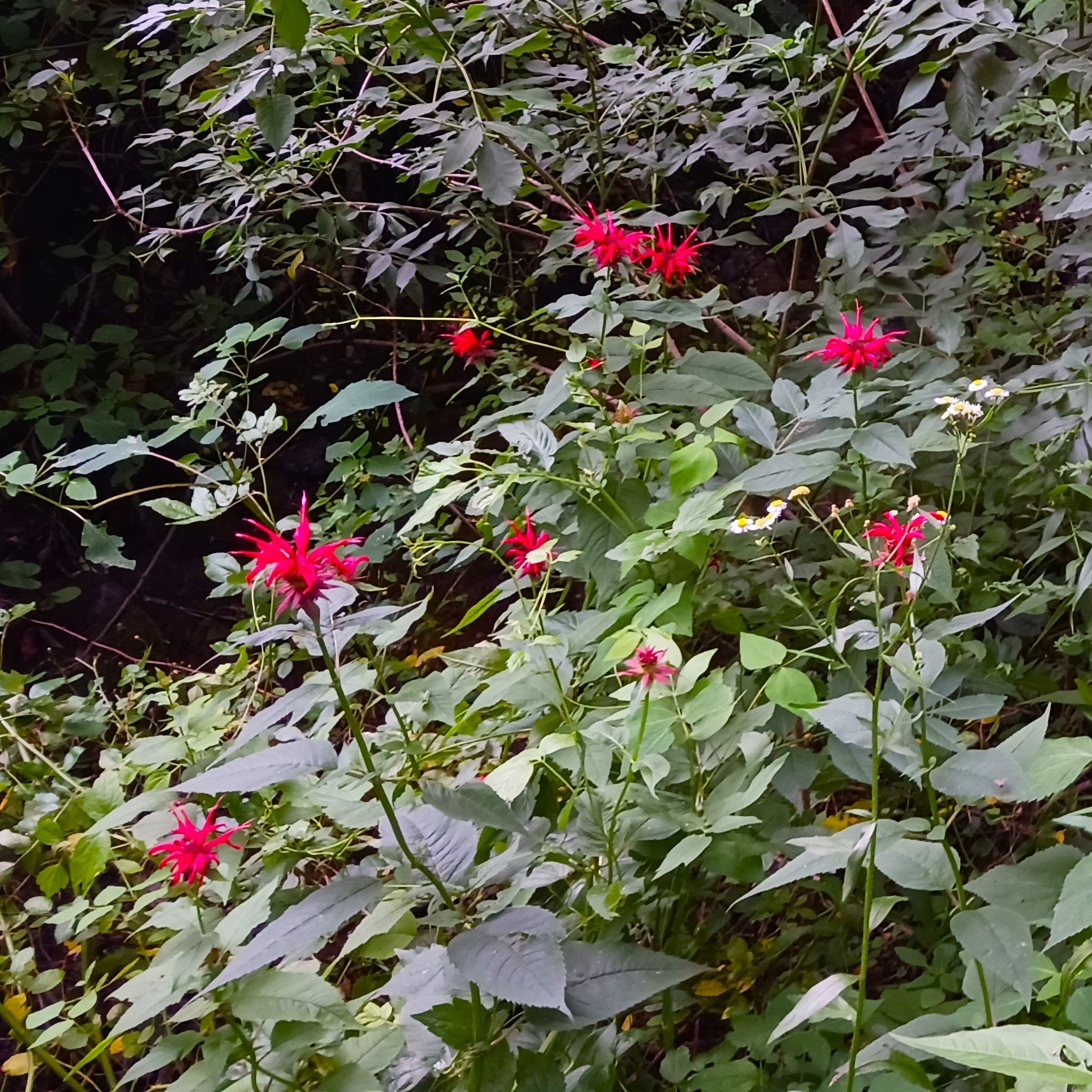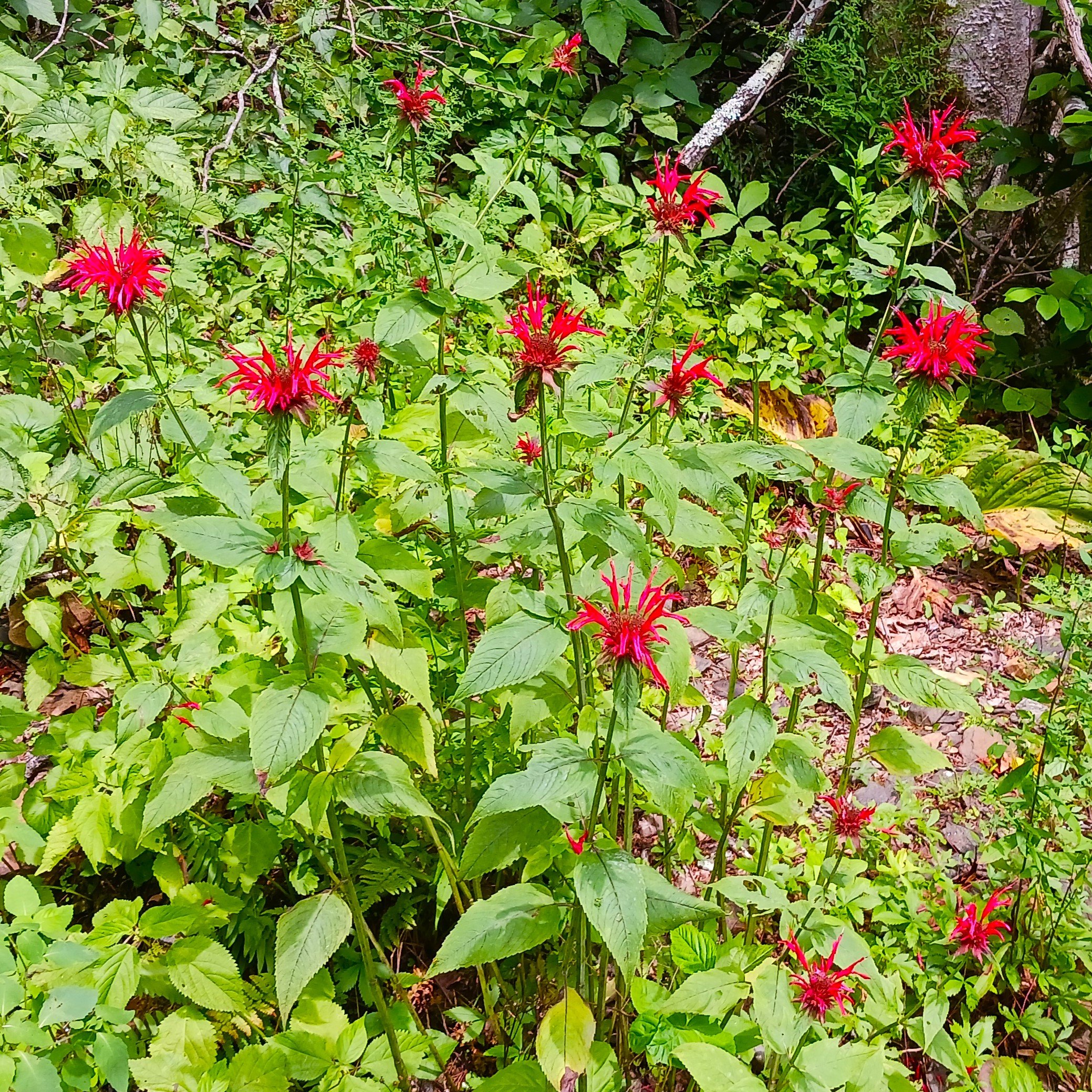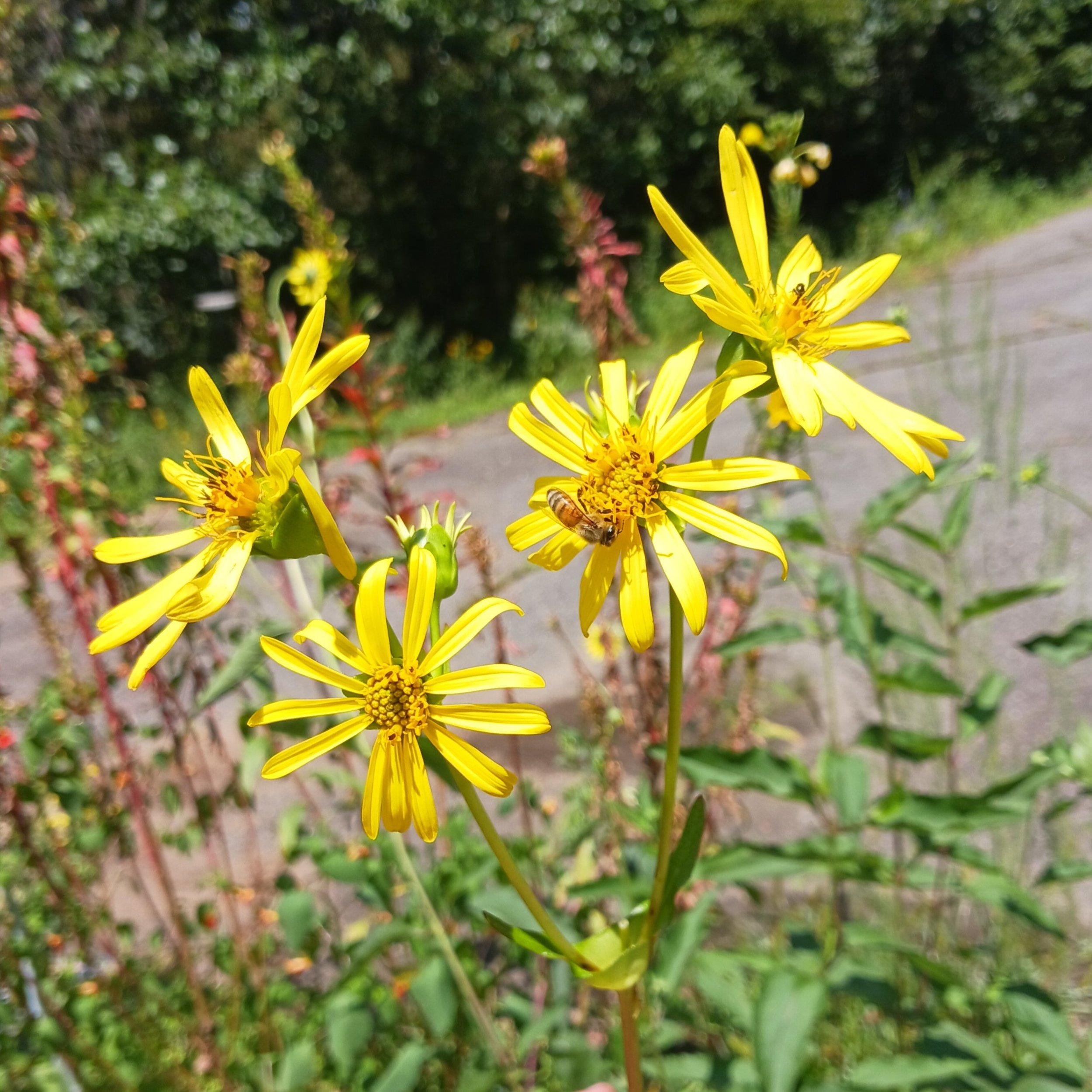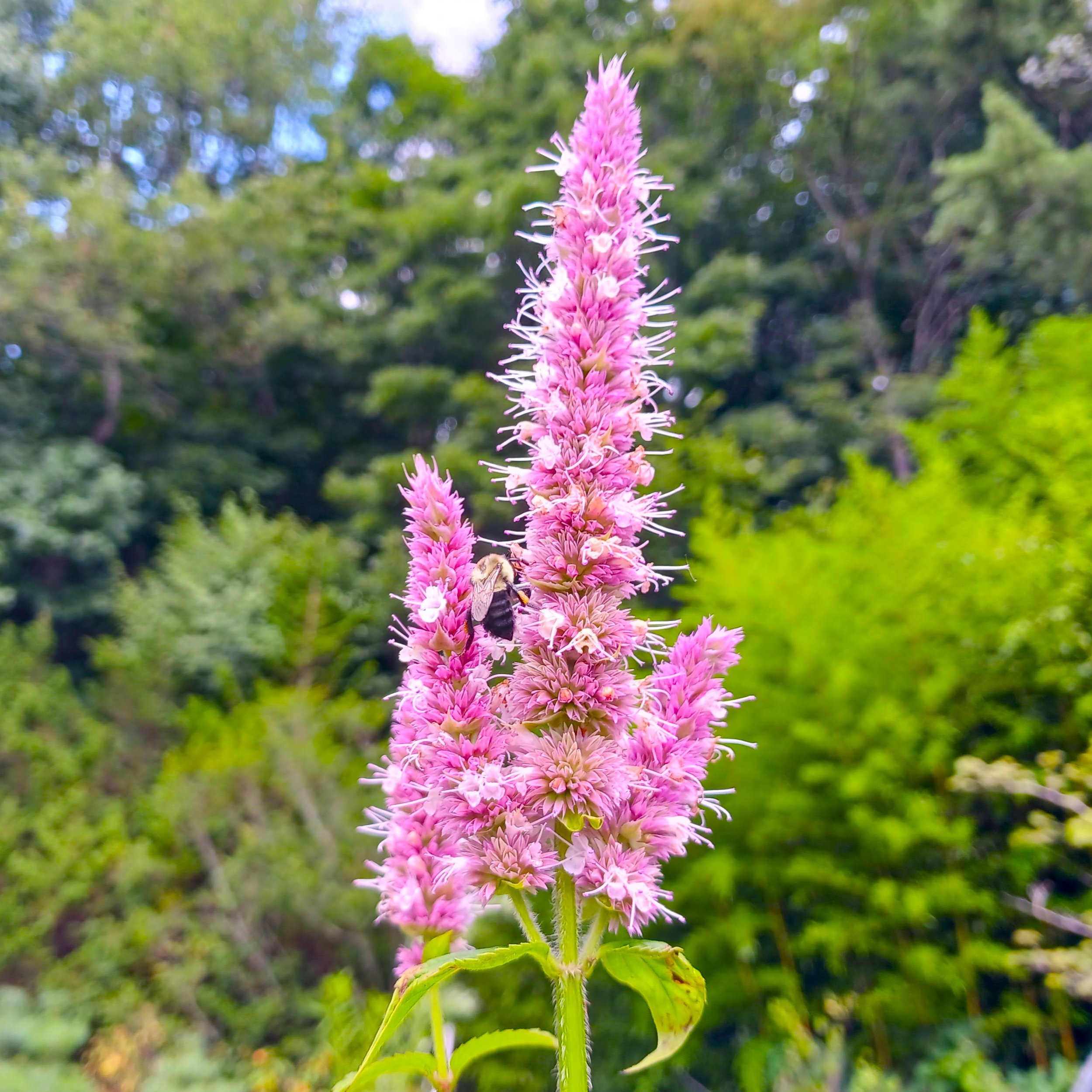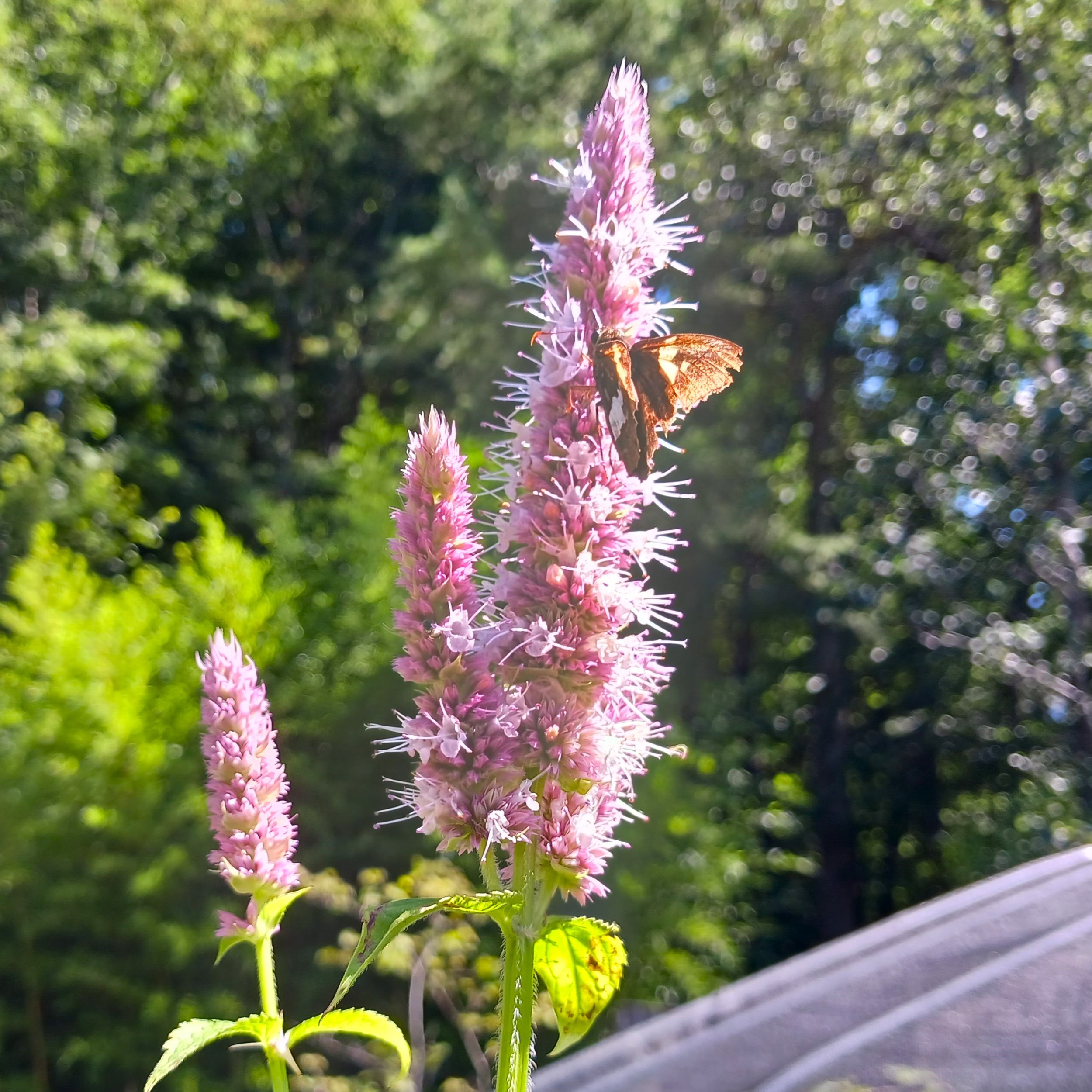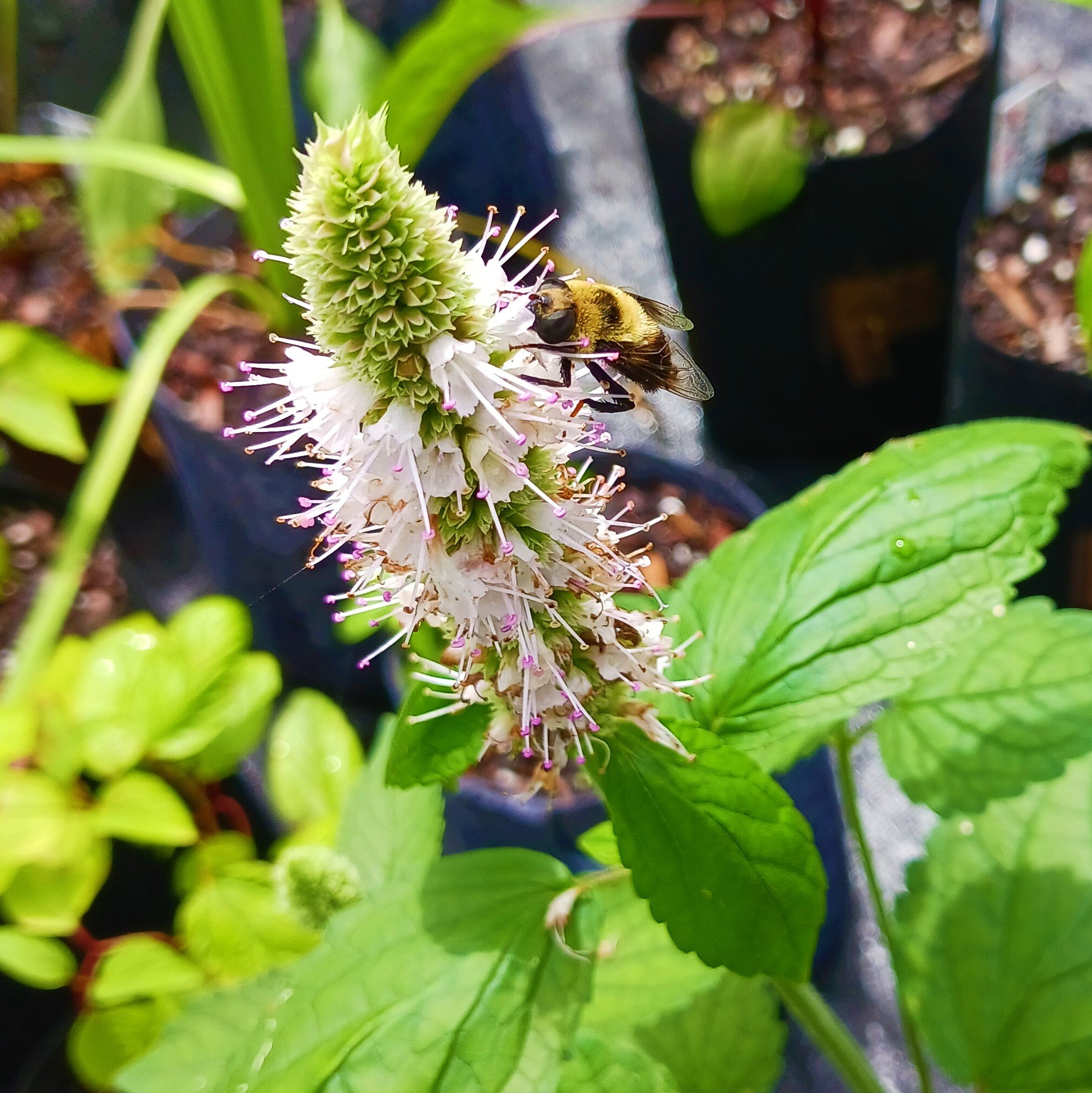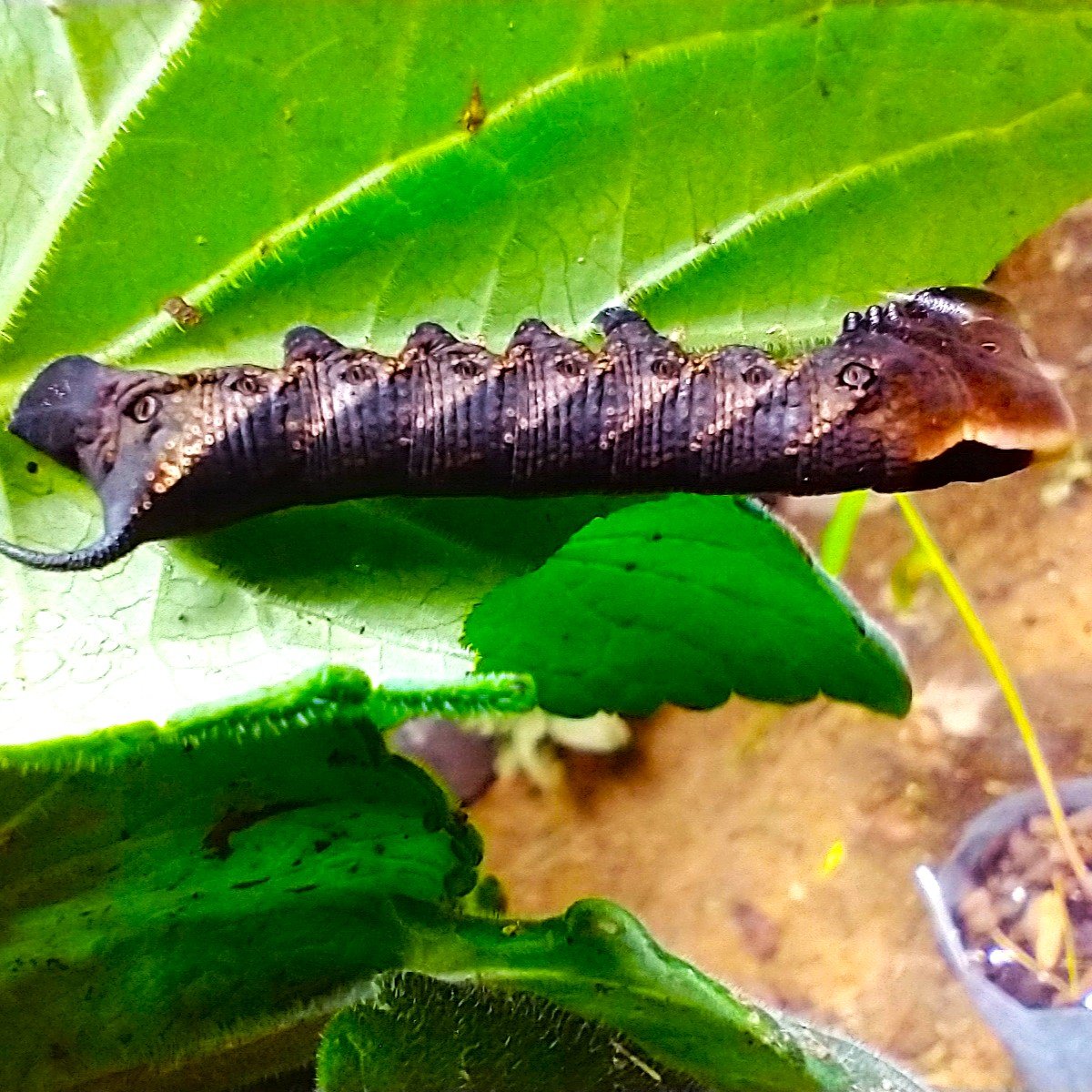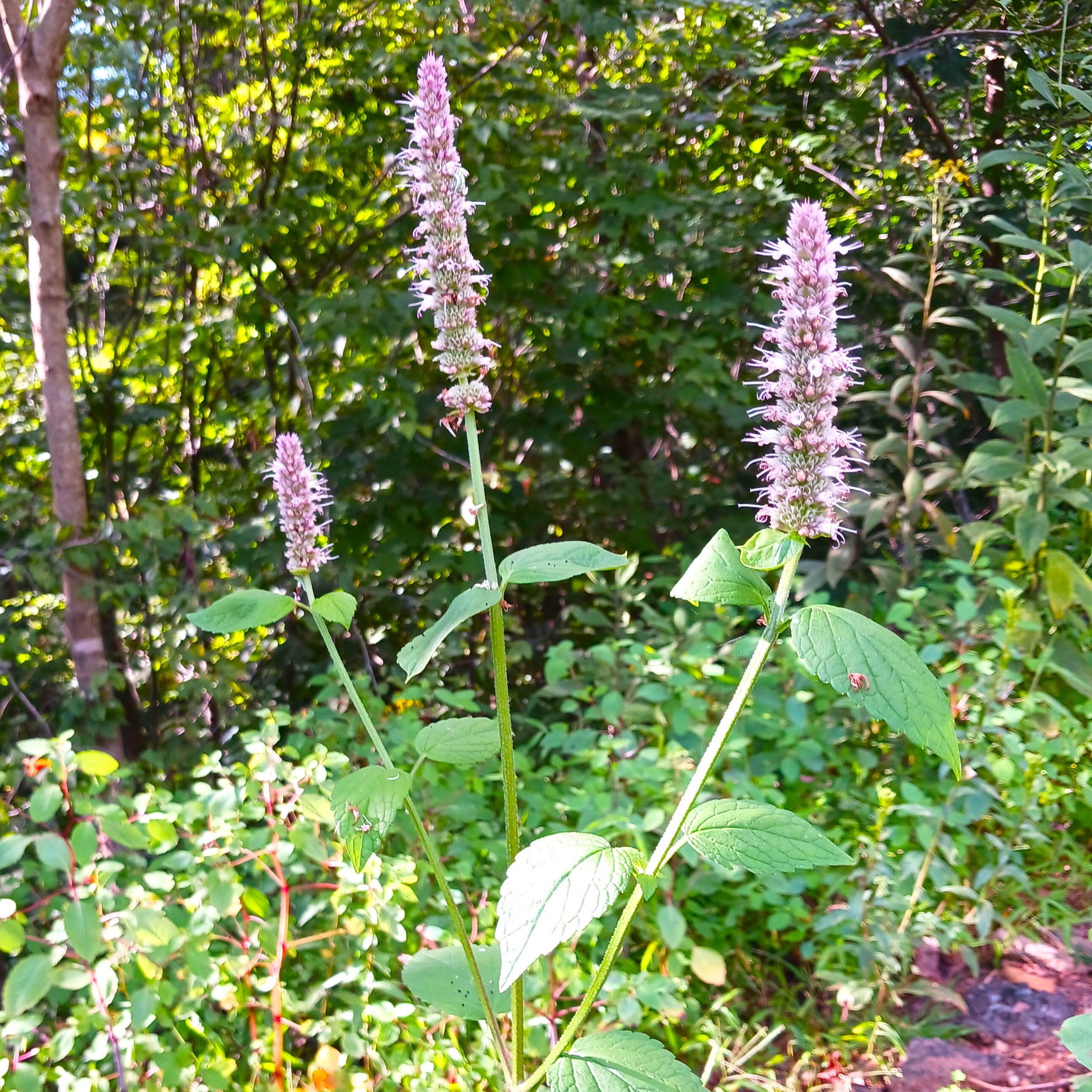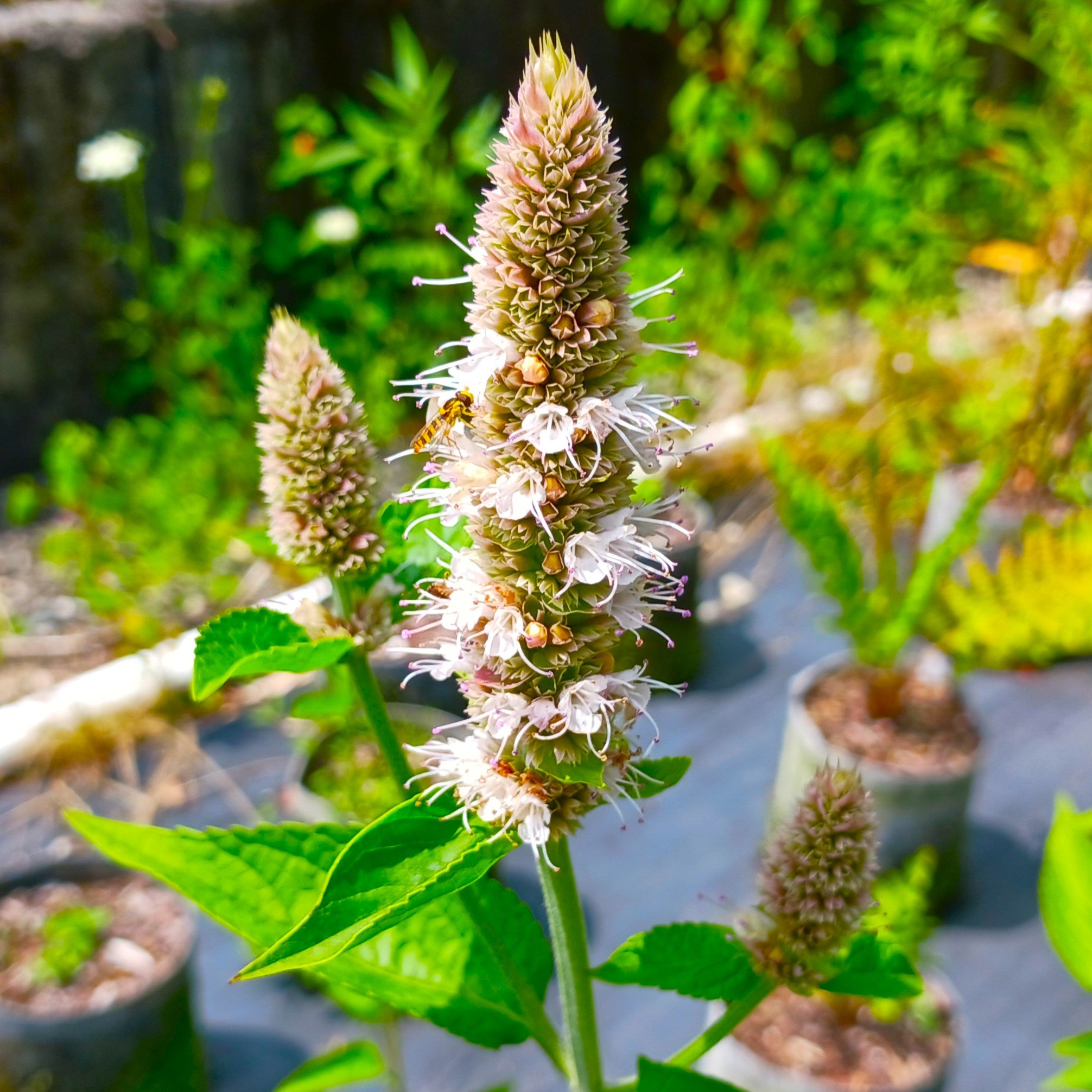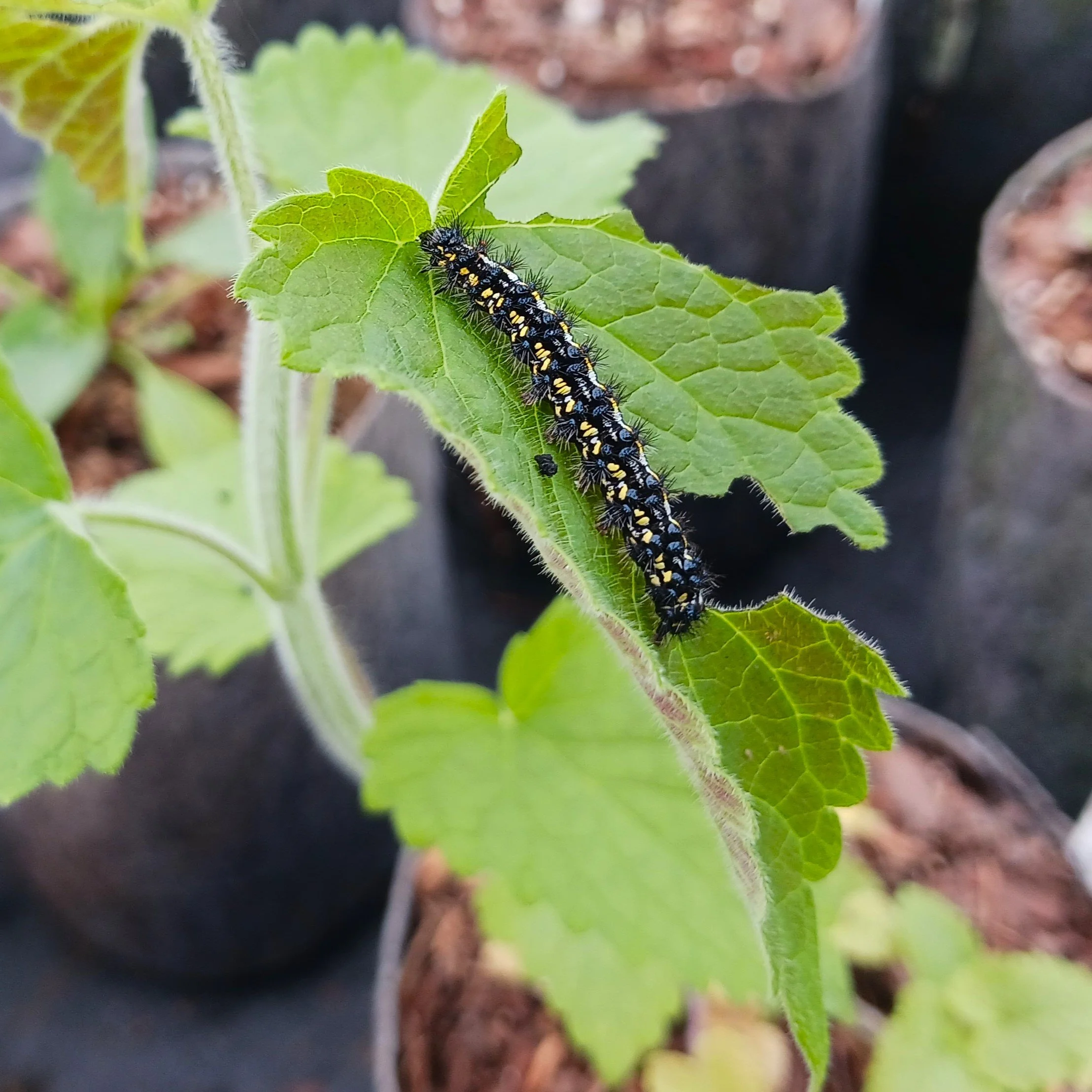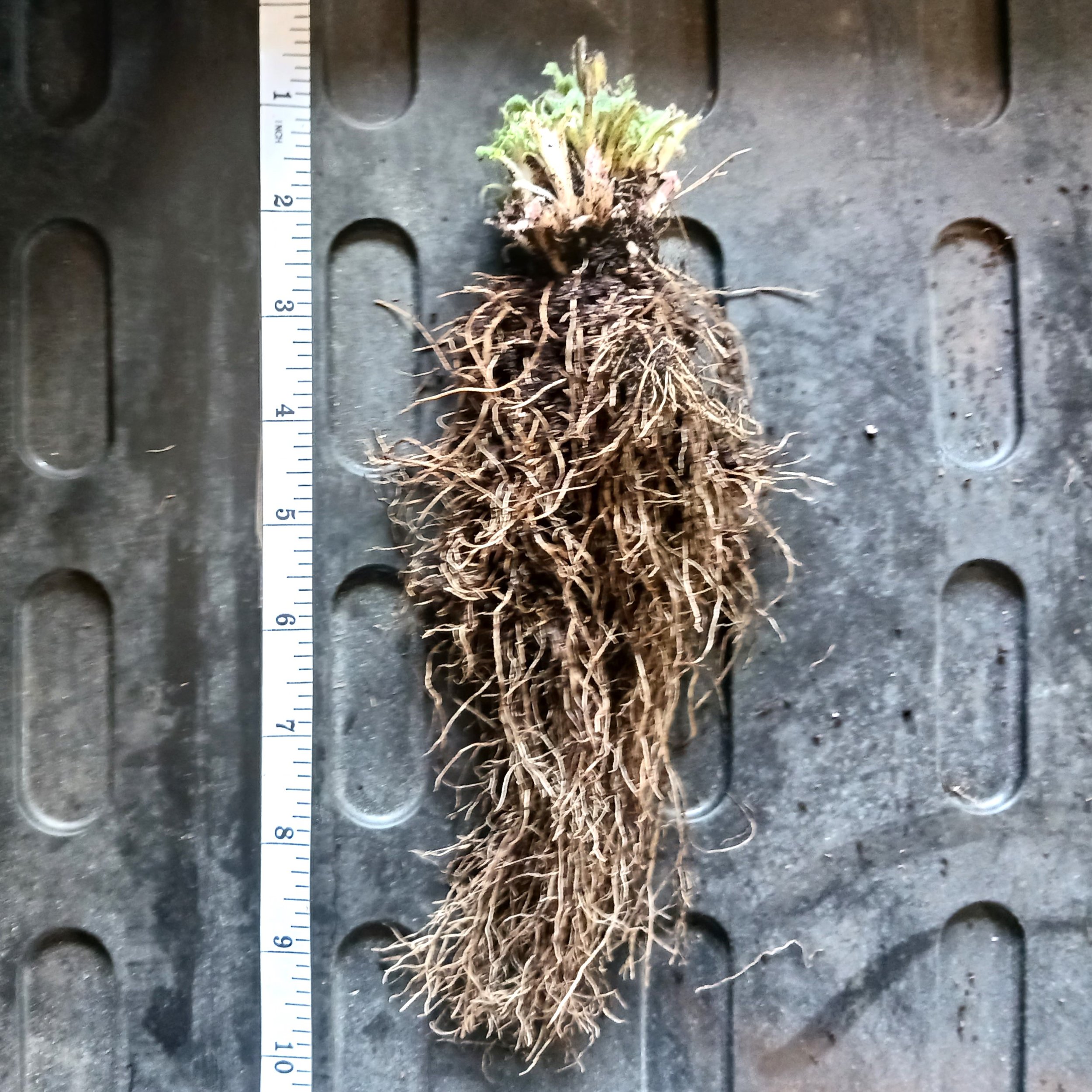Blephilia hirsuta or Hairy Woodmint is an outstanding wildflower for attracting pollinators, ideal for mountain gardens with a little more shade than sun. A cousin to Blephilia ciliata which is more common in the NC Piedmont and Coastal Plain, this hardy member of the Mint family is found throughout the Appalachian Mountains in NC and further north and west. The flowers are conspicuous when in full bloom - clusters of white with faint purple along upright 3’ stems, giving it an architectural resemblance to its other common name - Hairy Pagoda-plant. The flowers are faintly fragrant - I think they smell like gingerbread, and long-lasting. Some plants can bloom for over two months, even in shade, providing a great pollinator resource from mid-summer into early fall. Even when not in flower the leaves and stems are soft and a lovely green, smelling strongly of mint when crushed. Hairy Woodmint performs best in partial shade with soils that are regularly moist. They can tolerate wetter soils but not dry soils. This species can also be grown in full sun or full shade, but must be kept from drying out in sun and needs some air circulation in shade - it can get powdery mildew when under too much stress but this is usually not a problem. Hairy Woodmint does spread over time, forming small colonies, but it can be easily divided and transplanted if it gets too large and is not considered aggressive compared to non-native mints. Overall they are quite hardy in most conditions.
As a plant for bug lovers, Blephilia hirsuta is definitely a must-have. It attracts an incredibly diverse range of pollinating insects, especially small pollinators that are rarely seen up close, including all kinds of specialist bees, wasps, and flower flies, as well as larger bees and butterflies. The strong mint smell and flavor deter most mammals like rabbits and deer, and the profuse growth will bounce back even if nibbled. Hairy Woodmint also has very thick square stems, so leave at least 8”-24” of dead stalks intact, they will still provide nesting habitat for stem-nesting bees and other animals. The thick, leafy basal growth is also cold-hardy and can provide living mulch and winter cover for hibernating bugs, especially in areas where leaf mulch might get blown away. Hairy Woodmint also is a good plant for small spaces, such as patio container gardens - just ensure adequate watering if grown in a lot of sun.
Pollinators: bumblebees, leafcutter bees, long-horned bees, mason bees, little carpenter bees, resin bees, sweat bees, honey bees, butterflies, flower flies, bee flies, wasps
Host Plant for Butterflies/Moths: Orange Mint Moth (Pyrausta orphisalis)
Wildlife Value: shelter, winter cover, square-hollow stems
Deer Resistance: Excellent
Native Region: Appalachian Mountains
Seed Origin: USA
Light Recommendation: Full Sun, Part-sun, Dappled Shade
Soil Moisture Recommendation: Moist, Medium
USDA Zones: 3-8
States found in our region: AL, DE, GA, KY, MD, NC, PA, TN, VA, WV
Other states found: CT, IL, IN, IA, KS, MA, MI, MN, MO, MS, NE, NY, OH, OK, TX, VT, WI
















